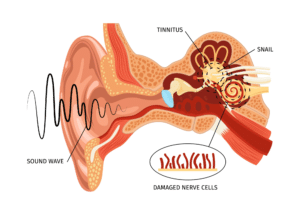If you’ve been experiencing dizziness, vertigo, or issues with balance, it’s understandable that your first thought might be to consult an ENT specialist in Singapore. These specialists are well-known for their ability to diagnose and treat conditions related to the ears, nose, and throat. However, before making that appointment, it’s worth considering whether vestibular physiotherapy might be the right first step in addressing your symptoms.
Vestibular physiotherapy is a non-invasive approach that can help individuals struggling with balance issues and dizziness. In many cases, it can provide relief or at least help to manage symptoms before ever stepping into a specialist’s office. In this article, we will explore how vestibular physiotherapy works, how it can help with balance disorders, and why it might be beneficial before consulting an ENT specialist.
What is Vestibular Physiotherapy?

Vestibular physiotherapy focuses on the rehabilitation of the vestibular system, which is responsible for controlling balance and spatial awareness. Located in the inner ear, this system works with the brain to keep you oriented and stable. When it malfunctions, it can lead to symptoms such as dizziness, vertigo, nausea, and general instability.
Through a range of carefully designed exercises and techniques, vestibular physiotherapy aims to retrain the brain and improve balance, offering individuals a chance to alleviate or reduce their symptoms without the need for invasive procedures or medication. In some cases, vestibular physiotherapy can even be a first-line approach, reducing the need to visit an ENT specialist.
Why Consider Vestibular Physiotherapy Before Seeing an ENT Specialist in Singapore?
While an ENT specialist may be the best option for some conditions, vestibular physiotherapy can be highly beneficial before seeking a diagnosis or further medical intervention. Many balance disorders are related to the vestibular system in the inner ear, which is an area that ENT specialists often focus on. However, vestibular physiotherapy can provide significant improvement and even cure your condition, before the need for more invasive measures arises.
ENT Specialist Vs. Vestibular Physiotherapist: Understanding Their Roles
While both ENT specialists and vestibular physiotherapists deal with balance-related conditions, their roles and approaches differ significantly. An ENT specialist focuses on diagnosing and managing disorders related to the ear, nose, and throat, often using medical tests, imaging, and medications to identify and address underlying conditions. They may recommend surgery or prescribe medication for severe cases like Ménière’s disease or chronic vestibular dysfunction. On the other hand, a vestibular physiotherapist takes a functional and rehabilitative approach, using targeted exercises to retrain the brain and body to adapt to vestibular dysfunction. This non-invasive treatment method can often reduce dizziness and improve balance without medical intervention. By seeking vestibular physiotherapy first, many individuals can manage or even resolve their symptoms, potentially avoiding the need for more extensive medical treatments from an ENT specialist.
The Link Between Vestibular Disorders and ENT Conditions
Conditions such as BPPV (Benign Paroxysmal Positional Vertigo), labyrinthitis, and vestibular neuritis are common causes of dizziness and vertigo. These conditions can all be linked to issues within the inner ear, which is why many people consult an ENT specialist. However, vestibular physiotherapy can help treat these issues before they escalate.

For example, BPPV occurs when small crystals in the inner ear become dislodged, causing brief episodes of intense dizziness. Through specific exercises like the Epley manoeuvre, a physiotherapist can help realign these crystals, often resolving the condition without the need for medication or invasive procedures.
The Role of Physiotherapy in Addressing Balance Issues
Vestibular physiotherapists are trained to help people with balance disorders by using exercises designed to improve coordination and retrain the brain’s ability to process signals from the inner ear. These exercises can significantly reduce dizziness and improve overall stability. In cases of vestibular conditions, such exercises have shown promising results in improving the patient’s ability to manage symptoms.
How Vestibular Physiotherapy Works to Prevent an ENT Visit
The core of vestibular physiotherapy involves a series of exercises and techniques designed to help the brain and body relearn how to process balance-related information. By working through these exercises, patients are often able to regain confidence and reduce their symptoms. Here are some of the key techniques involved:
1. Vestibular Rehabilitation Exercises
These exercises are designed to improve the brain’s ability to process signals from the inner ear. They involve a variety of movements that challenge balance and coordination, helping to retrain the brain. The physiotherapist will typically create a personalised programme that focuses on improving the specific balance issues a patient is experiencing.

For instance, gaze stabilisation exercises help patients to maintain visual focus while moving their heads. This is essential for those experiencing dizziness or vertigo caused by inner ear problems.
2. Gaze Stabilisation Techniques
Gaze stabilisation exercises are aimed at improving the coordination between the eyes and the inner ear. When the vestibular system isn’t functioning properly, individuals may have trouble keeping their vision steady while moving. Gaze stabilisation helps retrain the brain to maintain visual clarity during head movements, which can reduce dizziness and improve balance.
3. Balance and Coordination Training
The ability to stay steady and coordinated during everyday tasks is essential for those with vestibular disorders. Balance exercises like standing on one leg or walking in a straight line challenge the body’s balance system, helping to strengthen muscles and improve stability. The physiotherapist will guide patients through these exercises, providing support and ensuring they’re done safely.
4. Positioning and Postural Advice
Certain conditions, such as BPPV, can be triggered by specific head movements or changes in posture. Physiotherapists will provide advice on how to change or modify certain positions to reduce the risk of dizziness. Simple adjustments, such as not turning the head too quickly or sleeping with the head elevated, can go a long way in reducing discomfort.
Benefits of Vestibular Physiotherapy before visiting an ENT Specialist
There are many reasons why vestibular physiotherapy could be a valuable first step before consulting an ENT specialist in Singapore. Here are some of the key benefits:

1. Early Intervention
By addressing dizziness or balance problems early, you can prevent symptoms from worsening. Vestibular physiotherapy can help identify and resolve issues before they become chronic or more difficult to manage, reducing the need for more invasive medical intervention down the line.
2. A Non-Invasive Approach
Vestibular physiotherapy doesn’t involve surgery, medication, or any invasive procedures. Instead, it relies on a series of exercises that can be tailored to the individual’s needs. This means patients can avoid the risks and potential side effects that come with pharmaceutical solutions or surgery.
3. Increased Control Over Symptoms
Once you’ve completed a vestibular physiotherapy programme, you will have learned valuable skills to manage your symptoms independently. Through a set of exercises and techniques, individuals can work on their balance and coordination at home, improving their ability to function in daily life.
4. Improved Quality of Life
Dizziness and vertigo can severely impact your ability to perform everyday tasks. With vestibular physiotherapy, patients often experience improvements in their balance and confidence, which translates to a better quality of life. Tasks such as walking, driving, and even going up and down stairs become much easier.
5. Prevention of Future Episodes
Once a vestibular physiotherapy programme is completed, it doesn’t end there. By continuing to perform balance exercises at home, patients can reduce the risk of future episodes of dizziness or vertigo. Consistent practice can help maintain progress and prevent the recurrence of balance issues.
Why You Might Not Need to See an ENT Specialist Right Away
While an ENT specialist can certainly provide valuable insight and assistance, many vestibular conditions can be managed with vestibular physiotherapy. For conditions like BPPV and labyrinthitis, physiotherapy can offer relief without the need for medication or surgery. Vestibular physiotherapy often resolves issues effectively, so you might find it unnecessary to consult an ENT specialist right away.
Of course, if your symptoms persist or if a more complex condition is suspected, you may still need to see an ENT specialist. However, vestibular physiotherapy can often help manage your symptoms long before you need more invasive treatments.
Book Your Appointment with our Vestibular Conditions Specialist Today
If you’re experiencing dizziness, vertigo, or balance issues, now is the time to take action. Don’t let these symptoms disrupt your daily life—schedule a visit with us today and start your journey towards better balance and stability.
Our expert physiotherapists provide personalised care and targeted therapies designed to address your specific needs. Whether you’re dealing with ongoing dizziness, struggling with coordination, or looking for ways to improve your overall stability, our vestibular specialist are here to help.
Take control of your well-being—book now and take the first step towards feeling better and moving with confidence.
Take the First Step Towards Balance and Stability
If you’re struggling with dizziness or balance issues, we recommend considering vestibular physiotherapy as a first step before seeing an ENT specialist. Early intervention can make a significant difference in managing your symptoms and improving your overall well-being. Our non-invasive approach is effective and can provide long-term relief for many balance disorders.
Don’t let dizziness control your life. Take control of your balance and stability with our tailored physiotherapy programme, and you may find that you no longer need to seek further medical intervention.
If you or someone you know is experiencing balance issues, reach out to us at City Osteopathy and Physiotherapy today to learn more about how vestibular physiotherapy can help.










